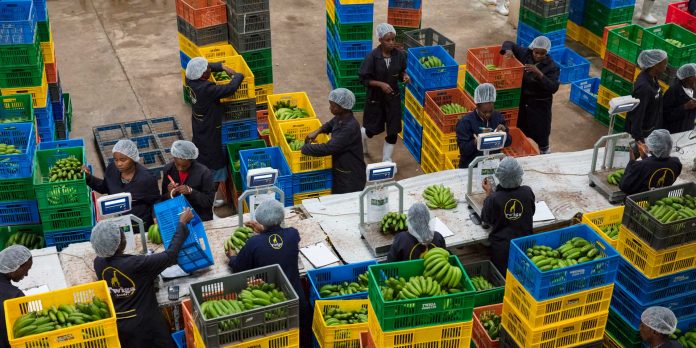Africa’s food import bill is likely to balloon, lifted by a deadly mix of shocks including the Covid-19 pandemic, desert locust invasion and natural disasters such as floods and drought.
According to most recent World Bank data, Africa’s food import expenses stand at $35-40 billion per year and growing, equivalent to the size of Tunisia’s economy.
The recent forces assailing the continent including Covid-19 which has disrupted inputs supply chain and put investments on ice now threaten to further lift the heavy bill, possibly past $40 billion per year.
The high import bill is despite the continent boasting a comparatively bigger share of arable land, especially in sub-Saharan Africa alongside a big army of working-age population looking for jobs. The continent suffers from low agriculture budgetary allocations, lower mechanisation and productivity levels and less product value addition – a situation that has long hamstrung output yields with most farmers stuck to traditional inefficient farming methods.
As a result, the continent continues to unnecessarily bleed hard currency in food imports to feed its fast-growing population, eroding forex reserves and exposing it to external shocks. At the same time, reliance on shipments makes African economies vulnerable to global food supply disruptions. The World Bank is now encouraging African governments to raise food budgetary allocations and provide structures geared towards enabling private agribusinesses to flourish in efforts to boost the volumes of foodstuff produced within the continent. This will not only ensure food security and fortification of hard currency reserves but it could also throw a lifeline to thousands of unemployed youth, enabling them to engage in productive activities with the continent reaping the demographic dividend.
The Horn of Africa countries have since last December been grappling with the worst desert locust invasion in 70 years, attacking the region’s breadbasket countries such as Ethiopia and Kenya and mowing down farmlands and pasturelands.
Also, parts of Africa have recently been hit by deadly floods while others have had to contend with prolonged dry spells, putting food production in jeopardy. Throw the coronavirus crisis into the mix and a looming food crisis becomes ever so real.
Read also: South Africans, Kenyans most concerned about climate change



